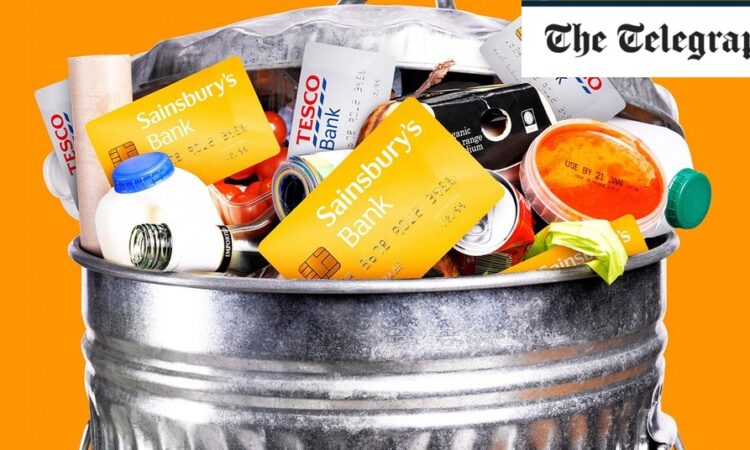
Questions over Sainsbury’s commitment to its financial services division have been buzzing for years.
The supermarket previously tried to sell Sainsbury’s Bank, attracting interest from prospective buyers such as Centerbridge Partners, but talks ended in 2021 after it concluded a sale did not offer good value for shareholders.
Tesco has similarly been trying to offload its bank, which employs 3,540 people and boasts 5.2m customers. It recently hired Goldman Sachs to explore a sale and HSBC, Lloyds and Barclays have all been flagged as possible suitors.
Why did supermarkets open banks in the first place? In the late 90s, the financial services sector was “very profitable”, says Sir Philip. “A lot of people were piling into financial services, generally and banking in particular, either as new entrants or to leverage off an existing brand.”
Banking also offered a new avenue of growth for supermarkets during a period of frenzied expansion.
As former Tesco chief Sir Terry Leahy previously said of his supermarket’s banking plans: “It’s a bit like a shark can’t stand still, it’ll sink. You’ve got to keep going forward.”
Yet, when the financial crisis hit, “the change in the perception of the attractiveness of the industry was utterly fundamental,” Sir Philip says.
Initially, supermarkets hoped there was an opportunity to draw customers away from the incumbents, given the damage done to many big banks’ reputations. Ultimately such a shift did not materialise.
“Despite all the efforts to try and break into the market, the traditional Big Four clearing banks still have a very high proportion of all current accounts,” says Sir Philip.
Still, it has not stopped many from trying to break into the market over the years. The strange cocktail of selling baked beans alongside mortgages is a mix unique to the UK but it has a long history.
Co-operative Bank, which is currently in merger talks with Coventry Building Society, offered financial services as part of the Co-op supermarket chain for 140 years before its near collapse in 2013.
A hedge fund rescue prompted a spin-off of the bank, although it got to keep the Co-op brand name.
M&S has also ventured into financial services with M&S Bank, although the lender is ultimately controlled by HSBC.
This gives it an edge over self-run lenders like Sainsbury’s Bank, which was originally founded with backing from Bank of Scotland before the supermarket took full ownership in 2014.






